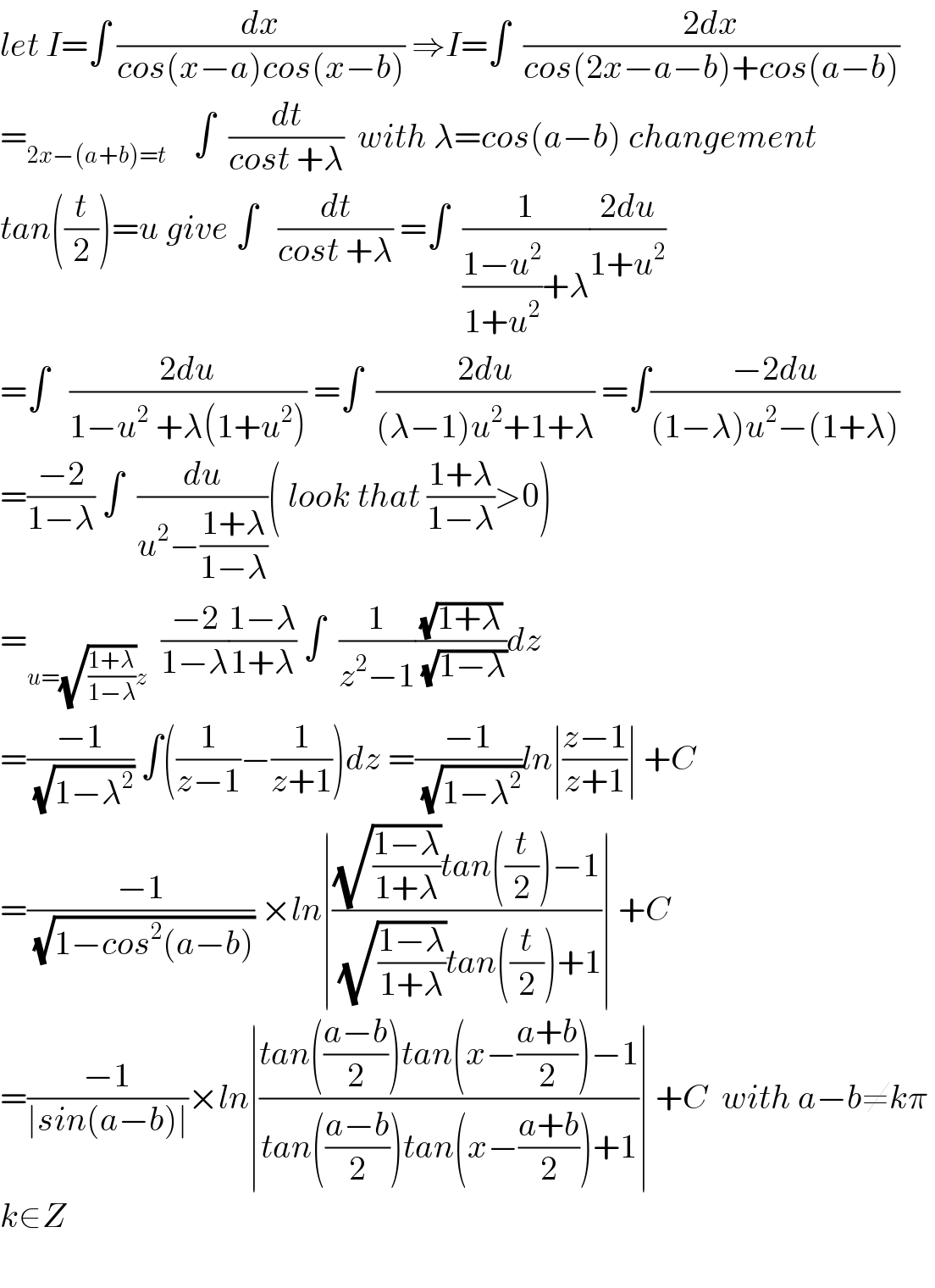
Question and Answers Forum
Question Number 71717 by peter frank last updated on 19/Oct/19

Commented by mathmax by abdo last updated on 19/Oct/19

Commented by peter frank last updated on 20/Oct/19

Commented by mathmax by abdo last updated on 23/Oct/19

Answered by Tanmay chaudhury last updated on 19/Oct/19
![(1/(sin(a−b)))∫((sin{(x−b)−(x−a)})/(cos(x−a)cos(x−b)))dx (1/(sin(a−b)))∫((sin(x−b)cos(x−a)−cos(x−b)sin(x−a))/(cos(x−a)cos(x−b)))dx (1/(sin(a−b)))∫[tan(x−b)−tan(x−a)]dx (1/(sin(a−b)))[lnsec(x−b)−lnsec(x−a)]+c (1/(sin(a−b)))ln(((sec(x−b))/(sec(x−a))))+c](Q71719.png)
Commented by $@ty@m123 last updated on 19/Oct/19

Commented by peter frank last updated on 19/Oct/19

Commented by Prithwish sen last updated on 19/Oct/19

